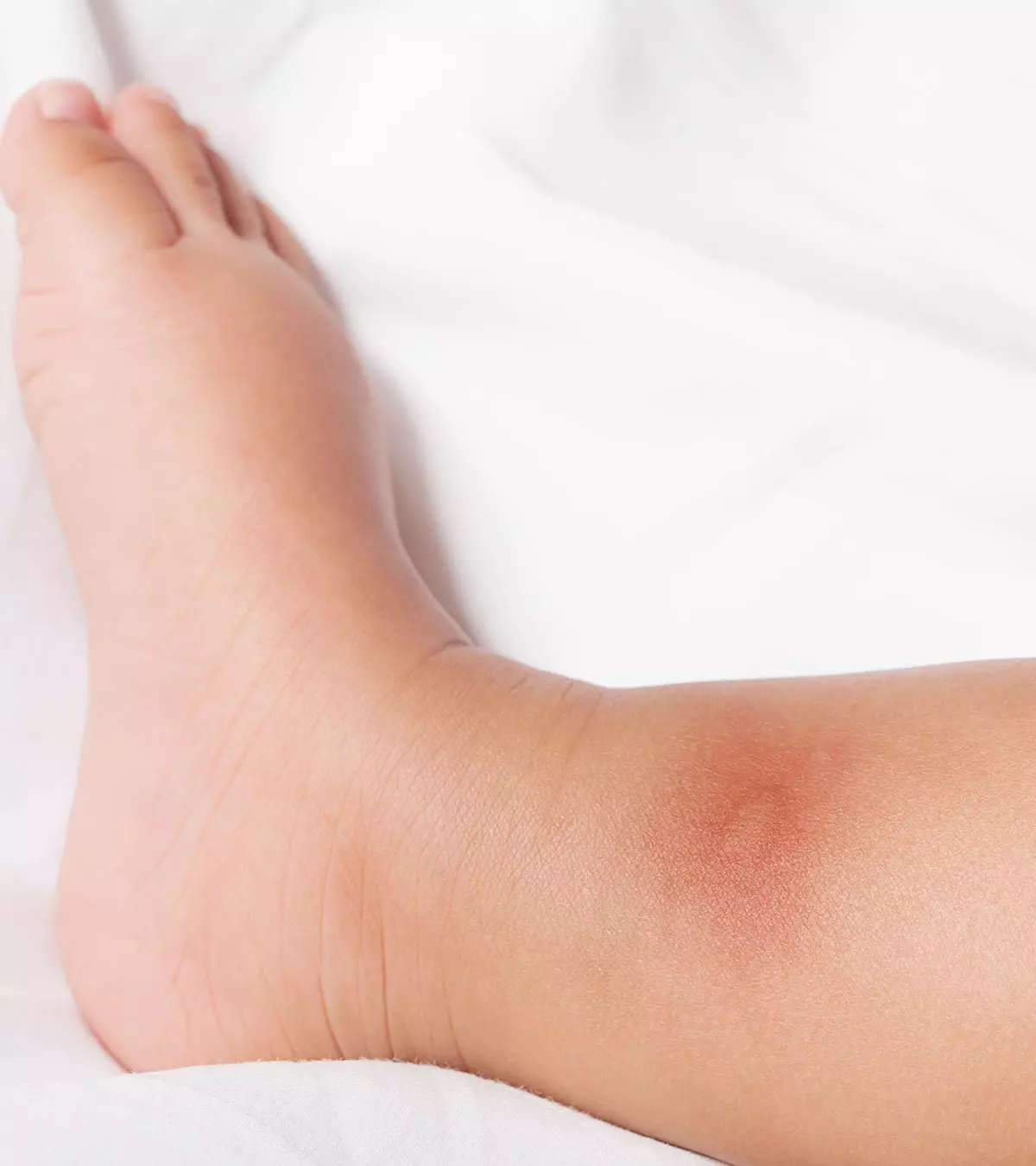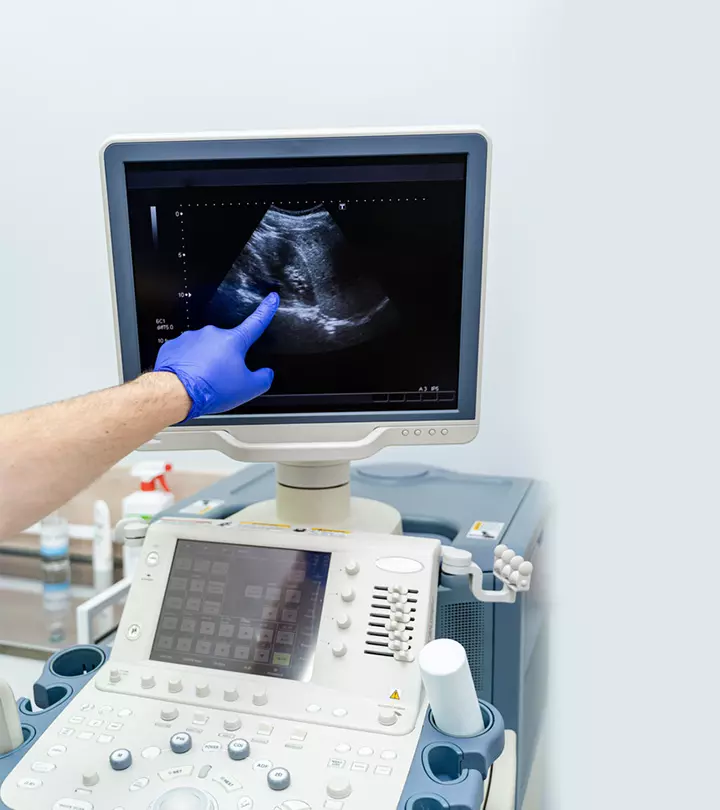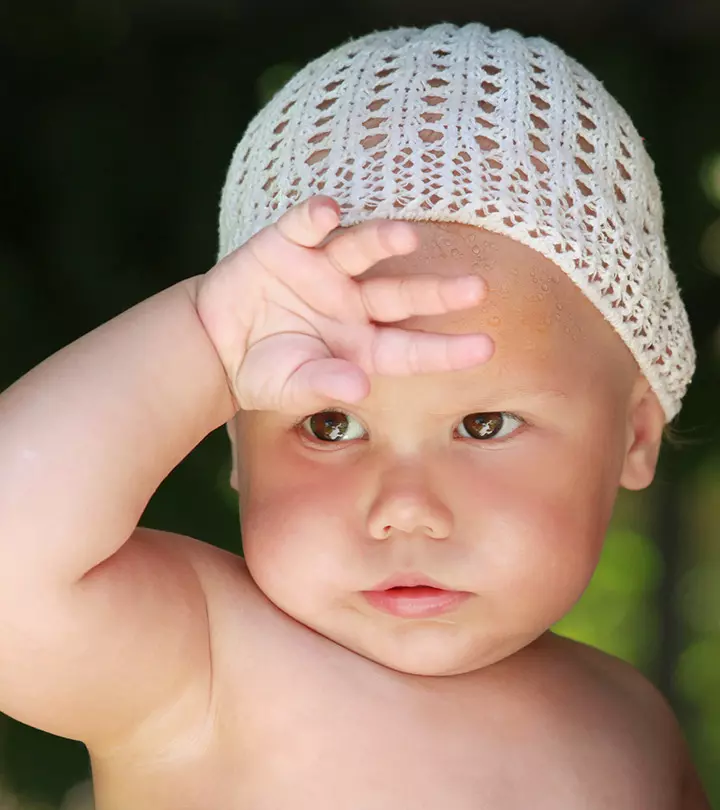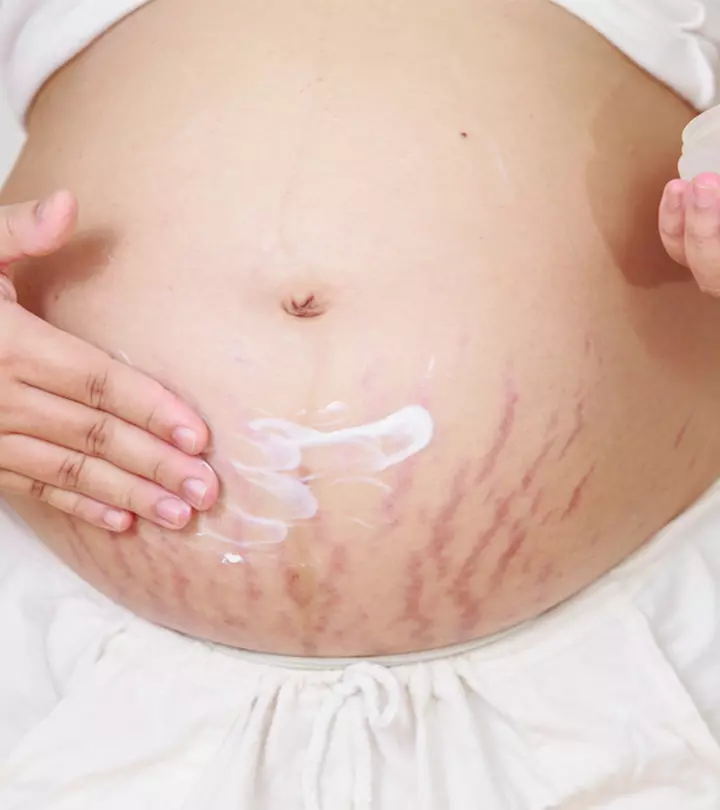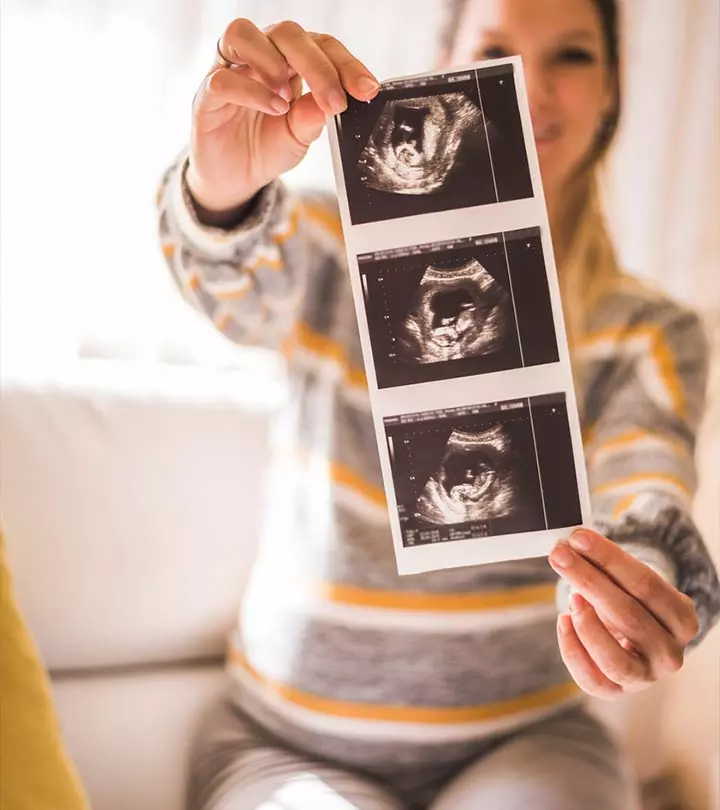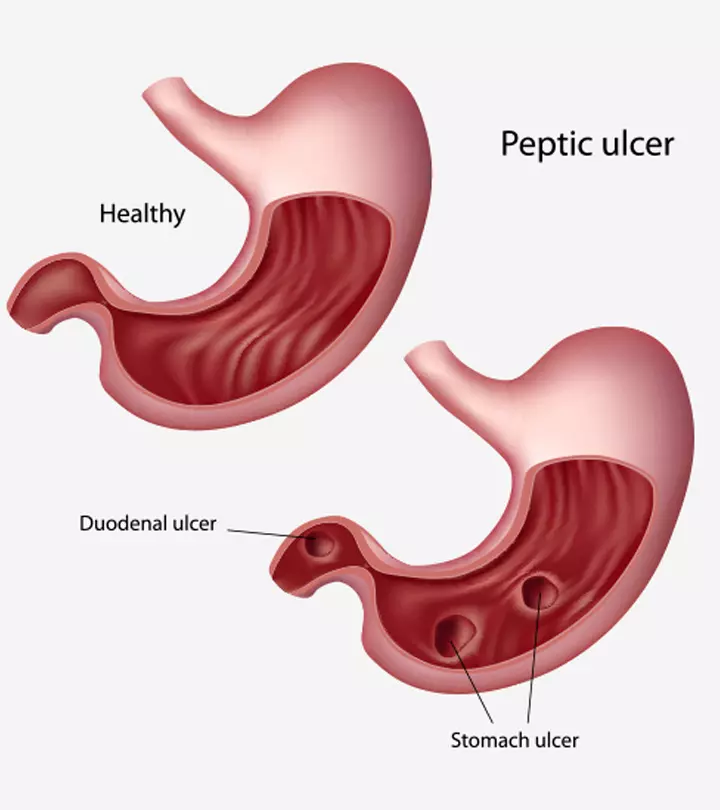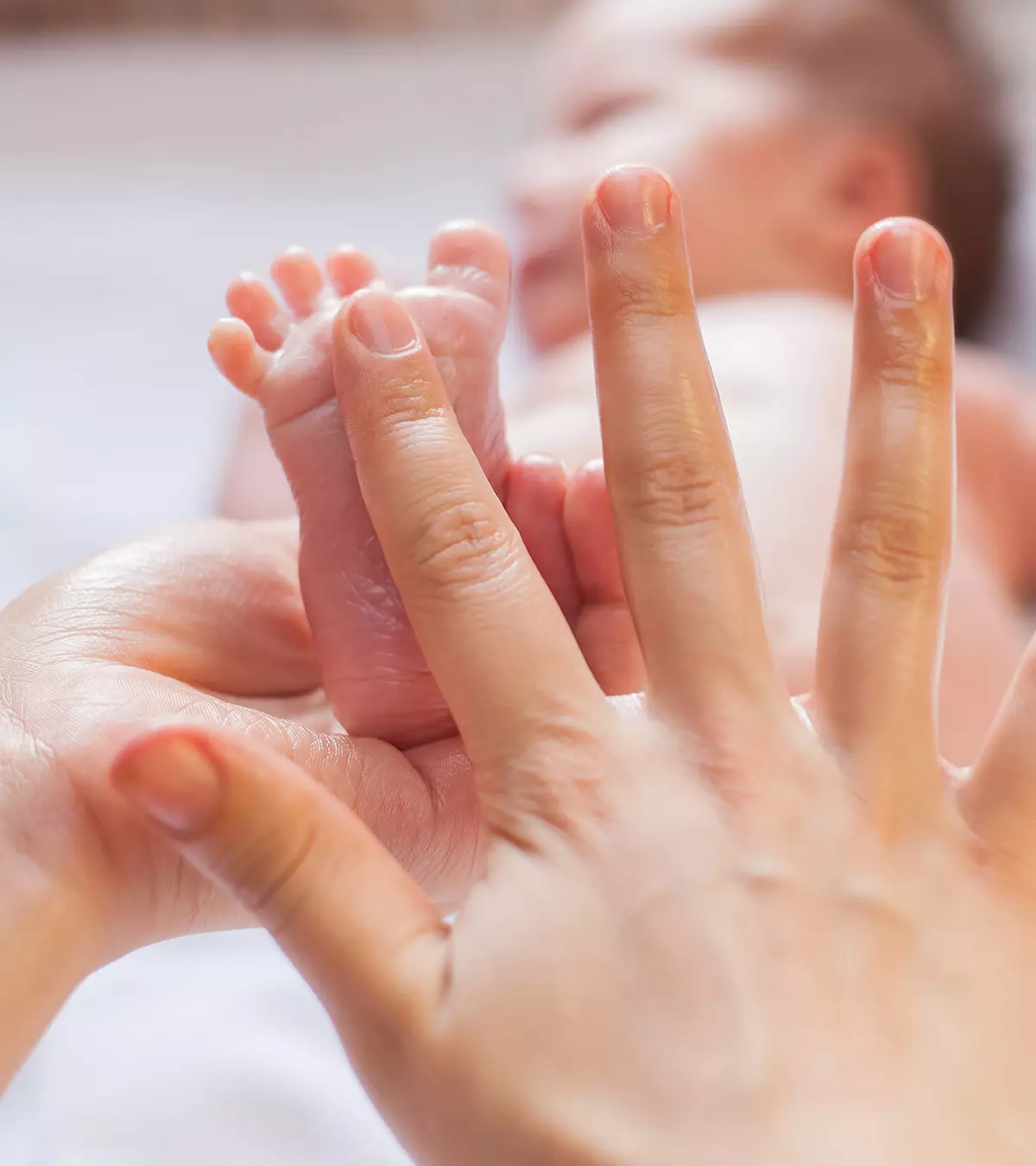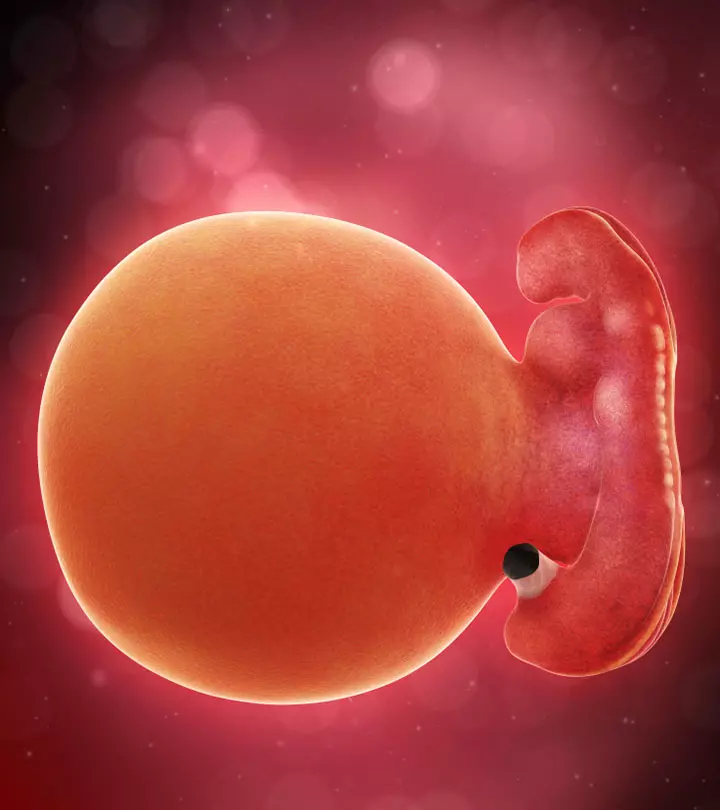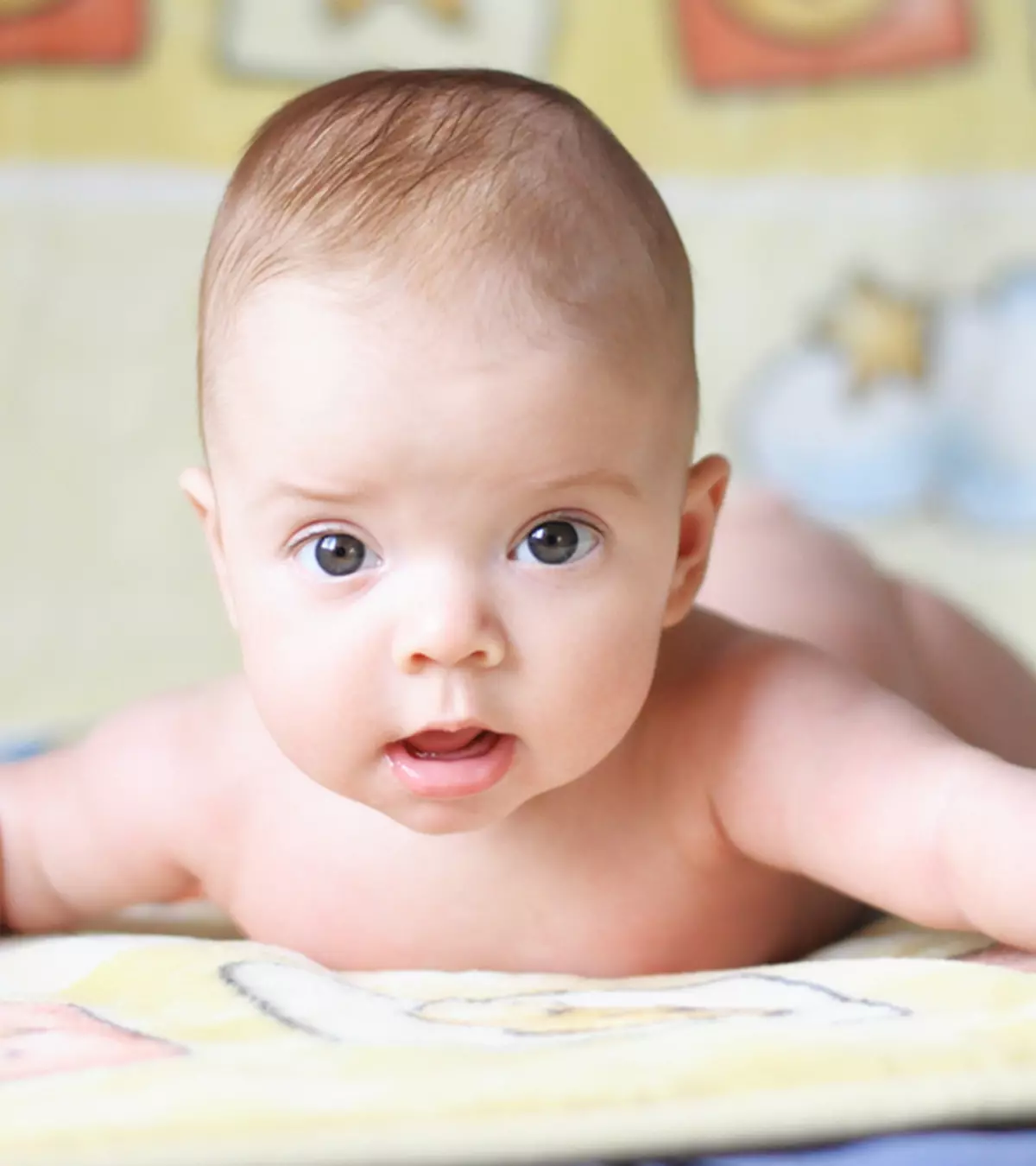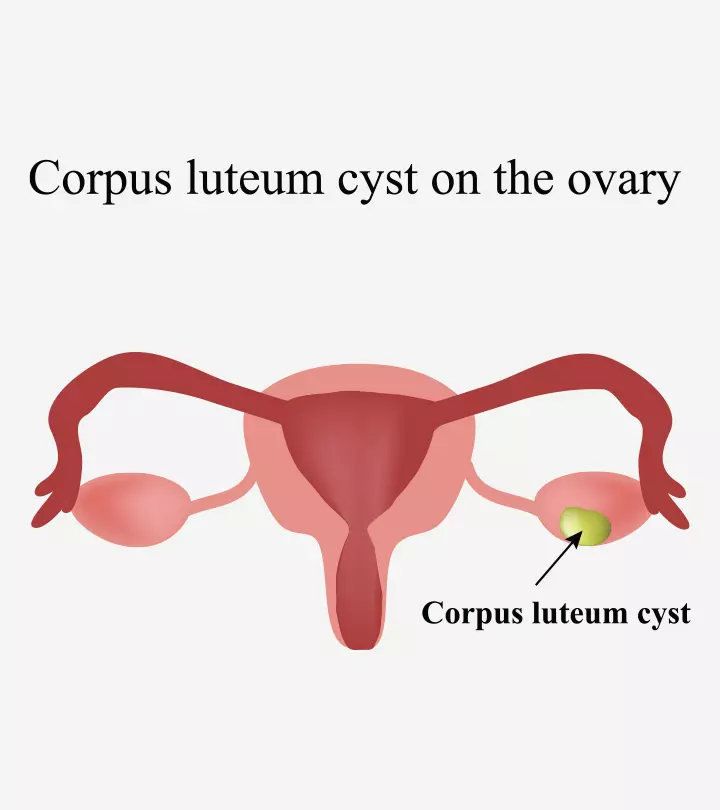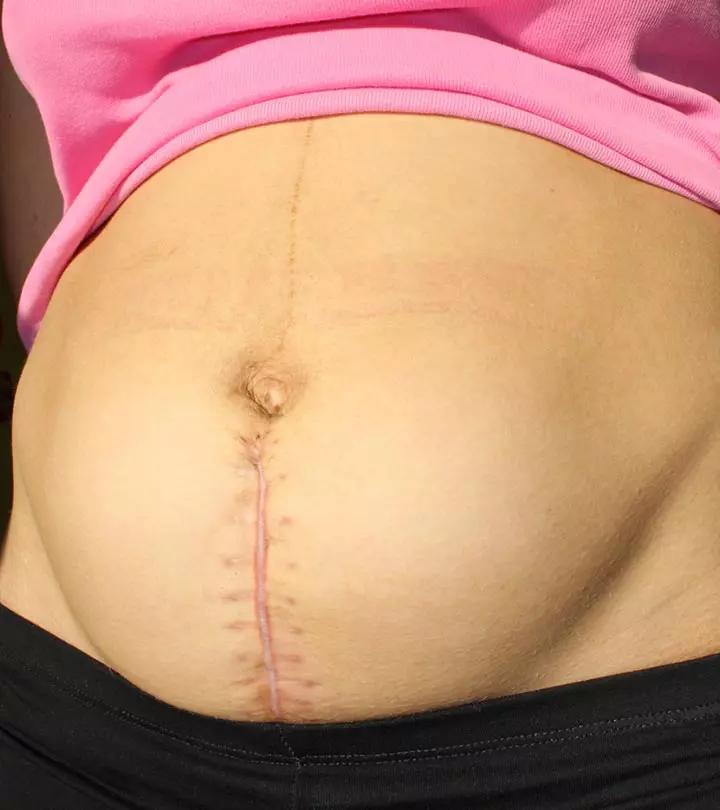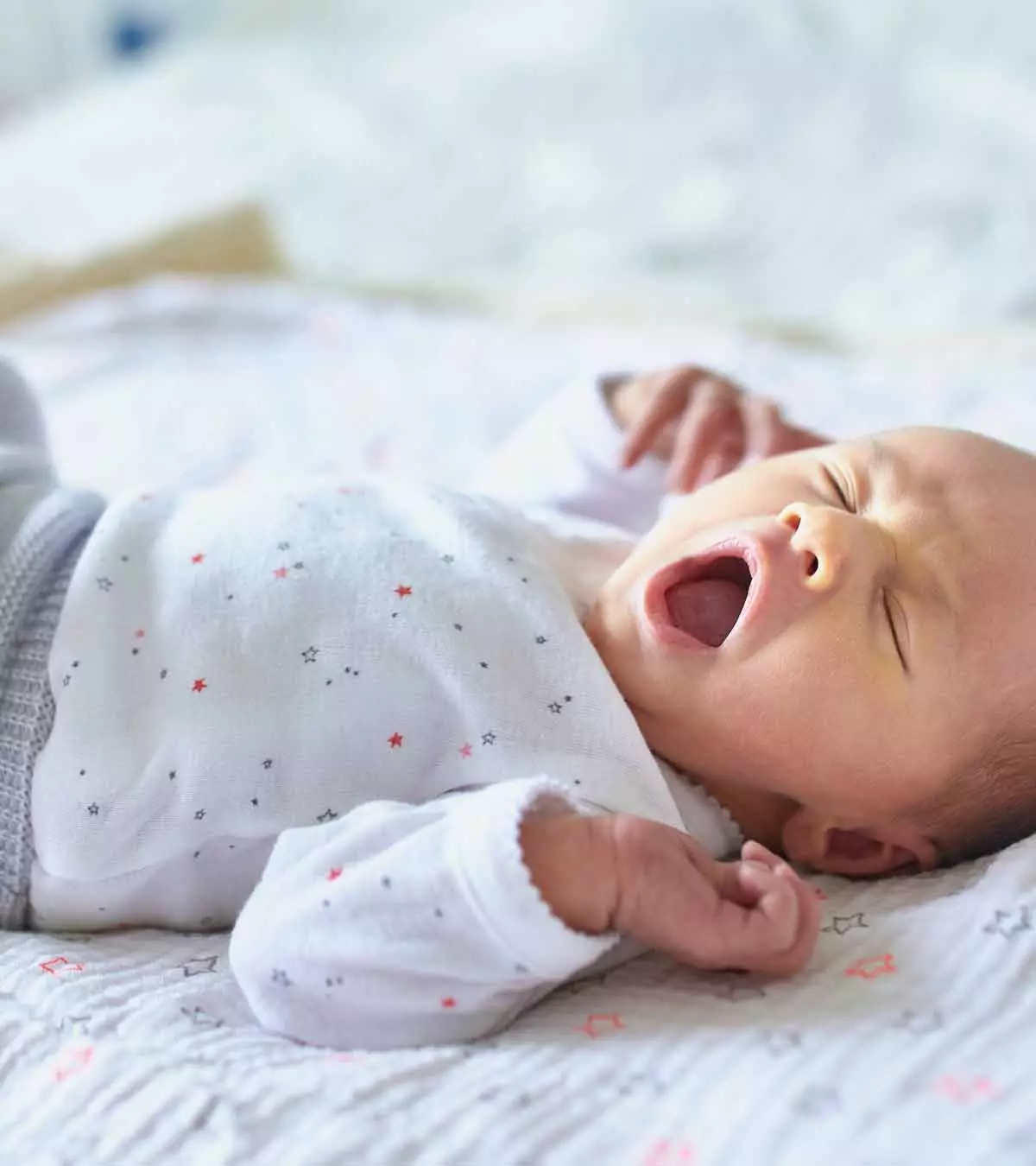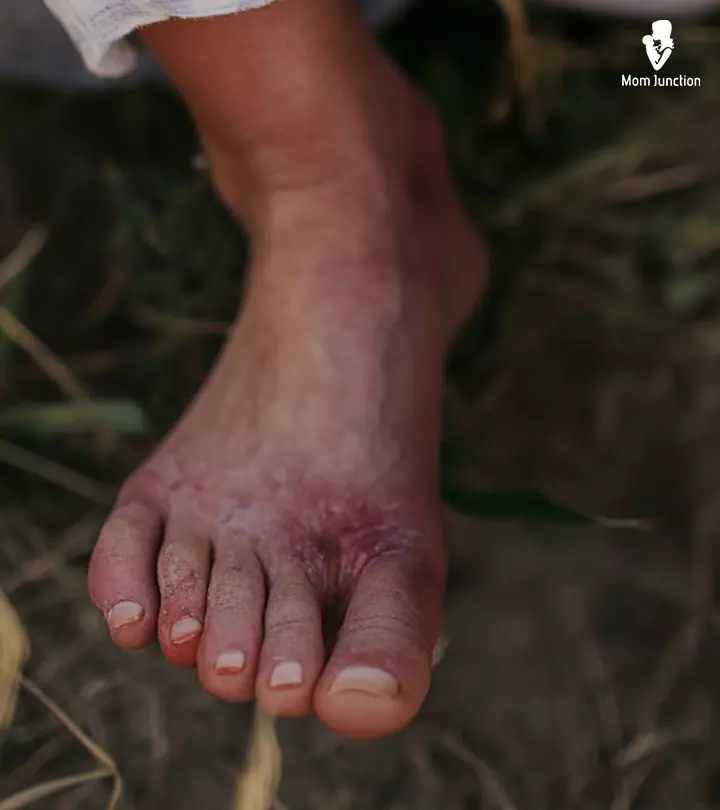
Image: Midjourney/ MomJunction Design Team
It is not recommended to treat Athlete’s foot during pregnancy with over-the-counter antifungals creams since many of these medicines are not safe for pregnancy. You must have forgotten to keep up with your beauty regimen and even avoided pedicures in pregnancy. But sweaty feet should not be ignored as the symptom could increase the risk of developing fungal infections such as Athlete’s foot. Hence, keeping your feet dry and clean can help prevent infections. Keep reading as we tell you the causes and treatment of Athlete’s foot in pregnancy.

Key Pointers
- Athlete’s foot is a fungal infection of the foot characterized by redness, itching, scaling and burning.
- Causes of athlete’s foot during pregnancy include skin-to-skin contact, being barefoot, poor hygiene, and hormonal changes.
- Store-bought antifungal creams and sprays should be avoided as they are not safe for use while pregnant.
- Home remedies such as keeping feet clean and dry, wearing well-ventilated shoes, and using vinegar and tea tree oil may help curb the problem.
- However, it is always best to consult a doctor before using any remedies, especially during pregnancy.
What Is Athlete’s Foot?
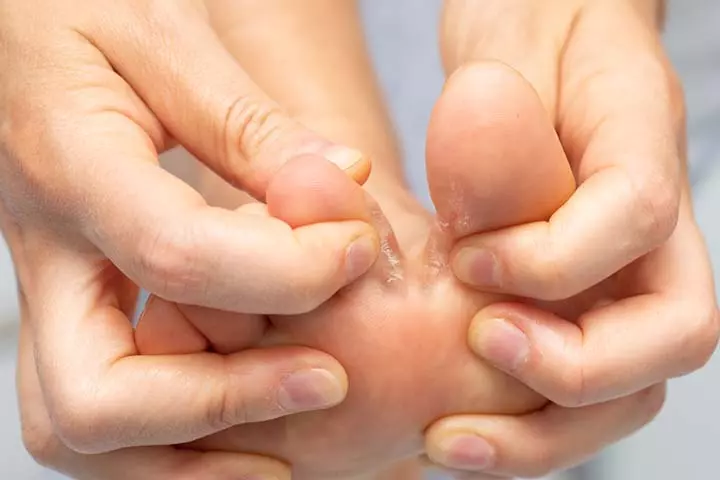
Athlete’s foot, also known as Tinea pedis and Ringworm of the foot, is a dermatophyte infection. It occurs due to poor foot hygiene. Parasitic fungi can thrive well in moist, dark and warm environments.
Some of the typical symptoms of the infectious disease are:
- BlistersiFluid-containing circular pockets that form on the skin as a result of burning, or other medical reasons
- Dry and itchy skin
- Scaling (Rough, hard and white patches appearing on the feet)
- Painful inflammation
A doctor will examine your feet for signs and symptoms to determine if you have an athlete’s foot. They might also want to know about your health history to make sure they’re treating the right problem. Sometimes, they might scrape off a tiny bit of skin to test it.
 Health fact
Health factCauses Of Athlete’s Foot During Pregnancy
Some common causes of Athlete’s foot while you are pregnant, include:
1. Poor feet hygiene
- During pregnancy, it becomes difficult for you to bend down to wash and scrub your feet due to abdominal distentioniBloating and abnormal expansion of the abdomen due to the accumulation of gas or fluid .
- It can significantly increase the impact of fungal sporesiReproductive units produced by certain fungi, bacteria, and non-flowering plants and sweat between the digit of your feet, and you are at a higher risk of developing Athlete’s foot.
2. Hormonal changes
- You may tend to sweat profusely due to the hormonal imbalance closely associated with pregnancy.
- Throughout the gestation period, it’s common for your feet to retain moisture, which can create an optimal environment for the growth of fungus.
3. Staying barefoot
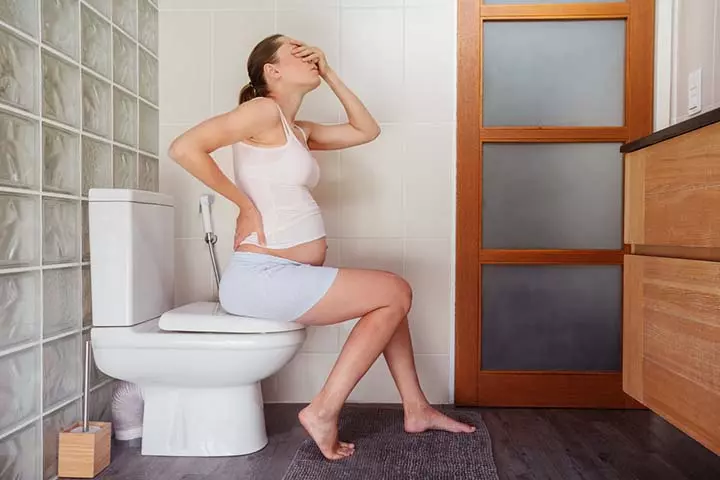
- If you often go to the damp loo barefoot, your risk of suffering from Athlete’s foot is higher.
- It is advisable to wear clean sandals and pat your wet feet dry with a soft towel. This may prevent the growth of fungi that cause toenail fungus during pregnancy.
4. Skin to skin contact
- As the germ happens to be contagious, having skin to skin contact with an infected person can elevate your risk of developing Athlete’s foot. Experts indicate that the fungus responsible for athlete’s foot can spread easily through items such as shoes, socks, and surfaces in showers and pools (2).
- For such reasons, you need to wash your feet immediately after having skin to skin contact with an infected person.
Treating Athlete’s Foot During Pregnancy
You should never use regular antifungal medications for treating Athlete’s foot in pregnancy. As these drugs can be detrimental to the health of your unborn baby. If your doctor allows it, or the rash turns aggressive, you can use basic home remedies and over-the-counter aids. OTC medications for athlete’s foot treatment during pregnancy can lead to many side effects.
Dr. James Zaccaria shares an important suggestion for avoiding athlete’s foot treatments during pregnancy in a video chat at the Foot and Ankle Center. He says, “Pregnancy can be stressful, making individuals more susceptible to fungal infections. However, I do not suggest a treatment plan that may harm the woman or the baby. Instead, I advise things like vinegar soaks, creams, and foot powders that can help absorb moisture for someone who perspires more than others, especially during pregnancy (i).”
It’s important to talk to a healthcare provider about individualized treatment options based on your medical history and pregnancy stage. They can suggest safe and effective alternative therapies tailored to your needs.
Note: Please note that some of the OTC fungal sprays for Athlete’s foot contain harsh chemicals that can harm breastfeeding and pregnant women. Hence, you need to acquire requisite medical assistance (1).
Preventing Athlete’s Foot During Pregnancy
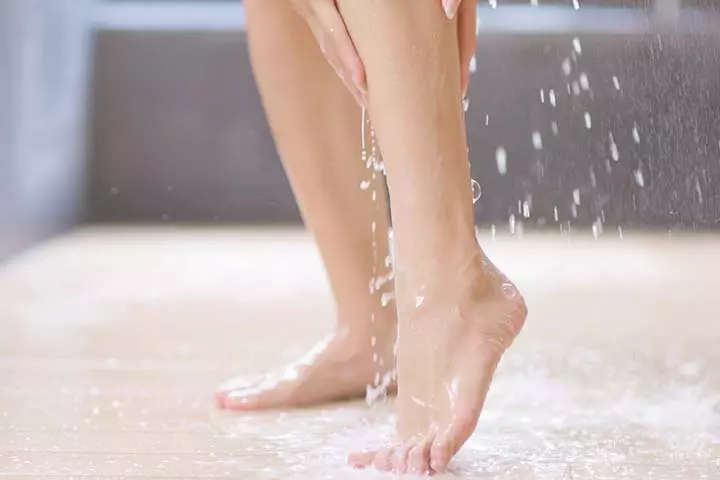
Here are some helpful tips that may help you avoid the fungal infection during pregnancy:
- Wash your feet, whenever they come in contact with common surfaces like the ladies toilet or the locker room.
- The foot fungus readily thrives in damp and humid climates. You need to maintain dryness of your feet and turn it inhospitable for the fungus to survive.
- To maintain dryness of your feet and wear well-ventilated socks and shoes. You can wear items made out of breathable materials like wool, cotton and leather.
- Choose shoes made from breathable materials like canvas or choose sandals, as they allow proper air circulation around your feet and keep them dry for a longer time span. Skin experts from the American Academy of Dermatology recommend wearing moisture-wicking socks and alternating shoes daily to ensure they are dry when worn (5).
- Keep changing your regular-wear socks and towels every day, and try to wash them in soapy water at 60°C (140°F) or higher, as lower temperatures may not effectively kill the fungus (2) (6).
Dr. Alan Lindemann, MD, an obstetrician, maternal mortality expert, and former clinical associate professor at the University of North Dakota,says, “Washing with soap and water doesn’t completely destroy fungi. I recommend new socks when you start treating your athlete’s foot and then new socks again once the condition has resolved. Do not reuse your old socks and shoes.”
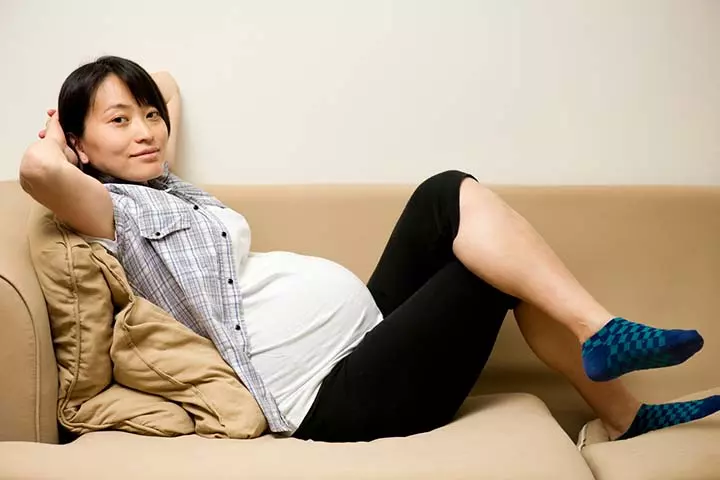
Home Remedies For Athlete’s Foot During Pregnancy
The most recommended way of treating an athlete’s foot during pregnancy is using safe, home-based, natural cures.
1. Apple cider vinegar solution
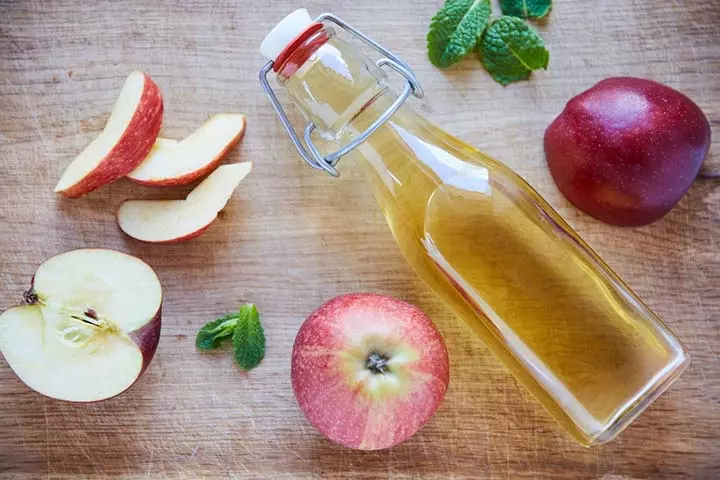
- Herbal foot soaks made using one cup of apple cider vinegar and two cups of water help in alleviating the fungal infection.
- You can soak your itchy feet for about 15-30 minutes in the acidic solution.
- The solution reduces the dryness and flakiness of your skin, which can be effective in preventing itchy feet in pregnancy.
Dr. Lindemann recommends, “The most common household agent is vinegar, which is very effective against athlete’s foot or other presentations for fungus. In general, fungi are difficult to destroy. If you use vinegar, I would recommend one of two choices. Either apply it twice a day or soak the webs of your toes with vinegar for ten minutes, which would require four to six ounces of vinegar once or twice daily for ten days. You may repeat this as often as needed. Vinegar in most countries is available at the grocery store, is effective, safe, and cheap.”
2. Essential oils
- Adding herbal oils like tea tree oil to your foot soaks disinfects your skin.
- The soothing effect of the essential oils helps in reducing stress during pregnancy, especially when you suffer from mood swings, headaches and abdominal cramping.
- Foot baths infused with potent essential oils like Neem oil and lavender oil serves as an excellent way of reducing the irritation caused by athlete’s foot and maintains foot health.
 Health fact
Health factFrequently Asked Questions
1. Can I use Canesten for an athlete’s foot when pregnant?
Yes, clotrimazole sold under the brand name Canesten may be used topically for an athlete’s foot during pregnancy. However, it must be used only under medical guidance to avert any risks posed to maternal health (3).
2. Can an athlete’s foot go away on its own?
No, an athlete’s foot is unlikely to resolve on its own and typically requires treatment as directed by a podiatrist. Prompt and effective management is crucial to prevent complications, such as onychomycosis, cellulitis, and pyoderma, particularly in individuals with weakened immune systems (4) (7).
3. How common is an athlete’s foot in pregnant women?
While the exact prevalence of athlete’s foot during pregnancy is not well-documented, studies suggest that approximately 3% of individuals aged 16 to 40 are affected, with family transmission being a common route (8). Pregnant women may be more susceptible to the infection due to hormonal changes that increase sweating, creating a moist environment conducive to fungal growth.
Improper foot hygiene, hormonal changes, or staying barefoot, especially in damp areas are common causes of athlete’s foot during pregnancy. Seek medical guidance if you develop athlete’s foot. Do not use over-the-counter antifungal medicines as they can adversely affect your baby. After consulting your doctor, you can try simple home remedies, such as applying essential oils and apple cider vinegar solution to the affected area. Washing the feet when they come in contact with common surfaces, keeping the feet dry, and wearing well-ventilated socks and sandals or shoes are a few ways to prevent athlete’s foot.
Infographic: What Happens If An Athlete’s Foot Is Left Untreated?
Athlete’s foot or tinea pedis usually cures with simple care measures and antifungal medications. It is possible to develop complications if it is left unmanaged in people with low immunity. Pregnancy reduces immunity, so expecting mothers should pay attention to preventing and controlling fungal infections of the foot. Go through the infographic to learn more about the possible complications of unmanaged fungal infection of the foot.
Some thing wrong with infographic shortcode. please verify shortcode syntax
Illustration: Athlete&rsquos Foot During Pregnancy: Causes And Home Remedies
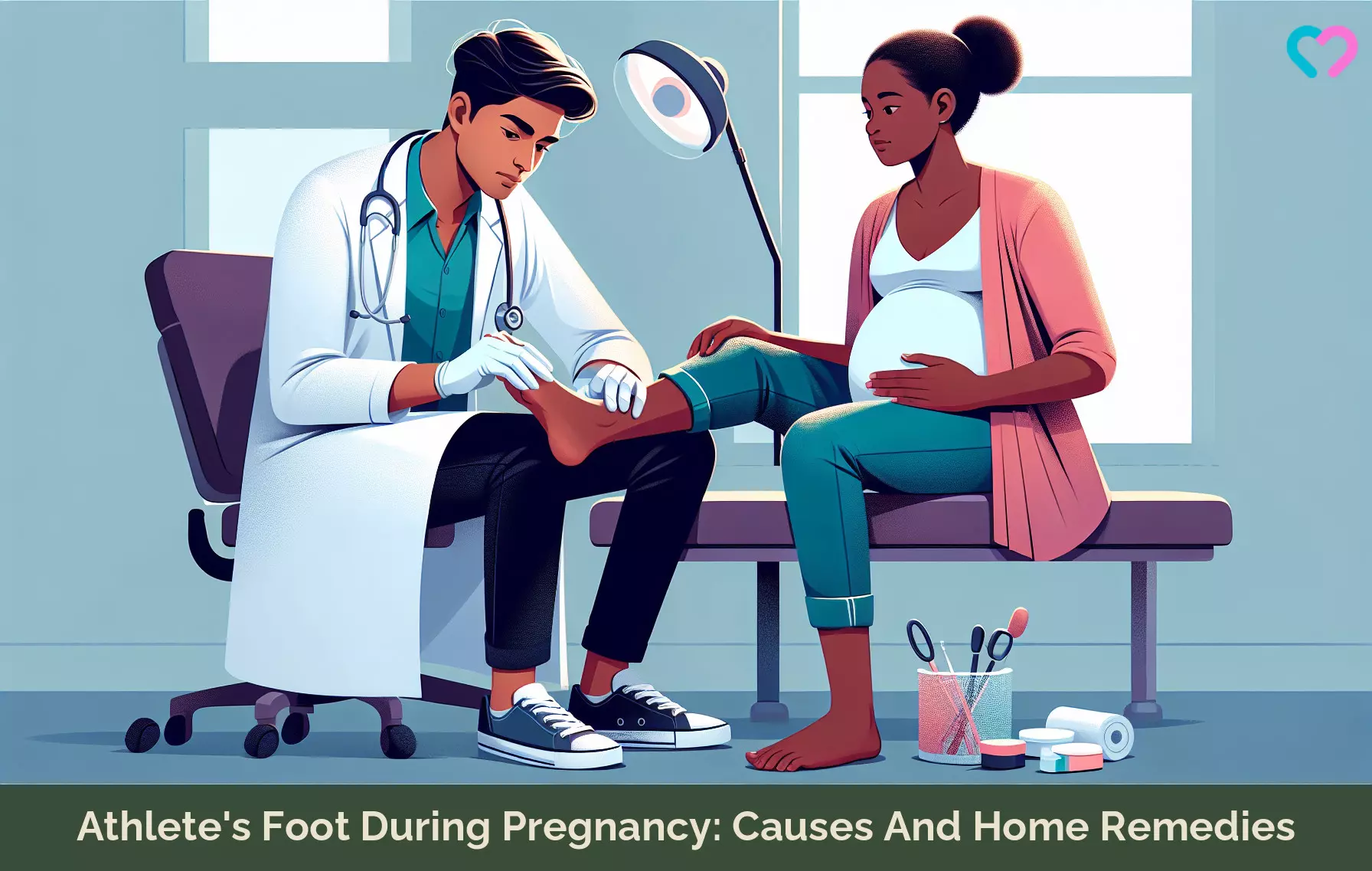
Image: Dall·E/MomJunction Design Team
An athlete’s foot is a common fungal infection caused due to various reasons. This video gives valuable insights into the risk factors, symptoms, and treatment.
Personal Experience: Source
MomJunction articles include first-hand experiences to provide you with better insights through real-life narratives. Here are the sources of personal accounts referenced in this article.
i. How Can I Treat Athletes Feet in Pregnancy?https://www.youtube.com/watch?v=fV8vHCkL6o8
References
- Athlete’s foot: Causes prevention and treatment—The FamilyHealth Guide.
https://www.health.harvard.edu/staying-healthy/athletes-foot-causes-prevention-and-treatment - Athlete’s foot.
https://medlineplus.gov/ency/article/000875.htm - Brand name: Canesten Clotrimazole Anti-Fungal ™;
https://www.healthdirect.gov.au/medicines/brand/amt,25741000168109/canesten-clotrimazole-anti-fungal#pregnancy - Athlete’s foot;
https://www.nhs.uk/conditions/athletes-foot/#:~:text=Athlete%27s%20foot%20is%20unlikely%20to,creams - How to prevent athlete’s foot.
https://www.aad.org/public/diseases/a-z/athletes-foot-prevent - Athlete’s foot: Learn More – What helps to get rid of athlete’s foot?
https://www.ncbi.nlm.nih.gov/books/NBK279548/ - Pramod K. Nigam et al., Tinea Pedis.
https://www.ncbi.nlm.nih.gov/books/NBK470421/ - Alexander KC Leung et al., (2025); Tinea pedis: an updated review.
https://pmc.ncbi.nlm.nih.gov/articles/PMC10321471/
Community Experiences
Join the conversation and become a part of our nurturing community! Share your stories, experiences, and insights to connect with fellow parents.
Read full bio of Dr. Michael Tahery
- Dr. Alan Lindemann is an obstetrician and maternal mortality expert, who worked as a clinical associate professor at the University of ND. An alumnus of the University of ND and the University of Minnesota, he is a member of the American College of Obstetricians and Gynecologists and the American Medical Association.
 Dr. Alan Lindemann is an obstetrician and maternal mortality expert, who worked as a clinical associate professor at the University of ND. An alumnus of the University of ND and the University of Minnesota, he is a member of the American College of Obstetricians and Gynecologists and the American Medical Association.
Dr. Alan Lindemann is an obstetrician and maternal mortality expert, who worked as a clinical associate professor at the University of ND. An alumnus of the University of ND and the University of Minnesota, he is a member of the American College of Obstetricians and Gynecologists and the American Medical Association.
Read full bio of shreeja pillai
Read full bio of Rebecca Malachi
Read full bio of Reshmi Das







